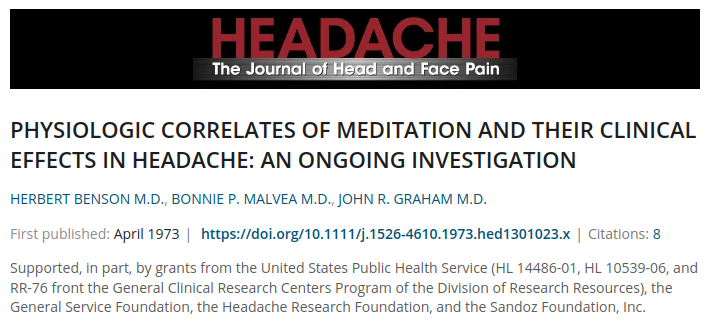Publication
Headache - The Journal and Head and Face Pain
Abstract
Supported, in part, by grants from the United States Public Health Service (HL 14486-01, HL 10539-06, and RR-76 front the General Clinical Research Centers Program of the Division of Research Resources), the General Service Foundation, the Headache Research Foundation, and the Sandoz Foundation, Inc.
Web and Email Links
Related Listings
Journal
AAAS Eureka Alert
Researchers identified genes and biological pathways linked to immune regulation, metabolism, and circadian rhythm in people who reduced their hypertension after eight-week relaxation response training
Journal
Journal of Integrative and Complementary Medicine
Several hundred peer-reviewed studies in the past 20 years have shown that the relaxation response and mind–body interventions are clinically effective in the treatment of many health problems that are caused or made worse by stress. Recent studies show that mind–body interventions may improve prognosis in coronary heart disease and can enhance immune functioning. It is hypothesized that mind–body interventions reduce sympathetic nervous system activation and increase parasympathetic […]
Journal
Nature
Since meditative practices are associated with changes that are consistent with decreased activity of the sympathetic nervous system, it is conceivable that measurable body temperature changes accompany advanced meditative states. With the help of H.H. the Dalai Lama, we have investigated such a possibility on three practitioners of the advanced Tibetan Buddhist meditational practice known as g Tum-mo (heat) yoga living in Upper Dharamsala, India. We report here that in a study perfor […]

